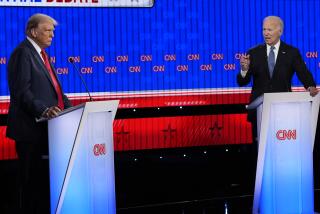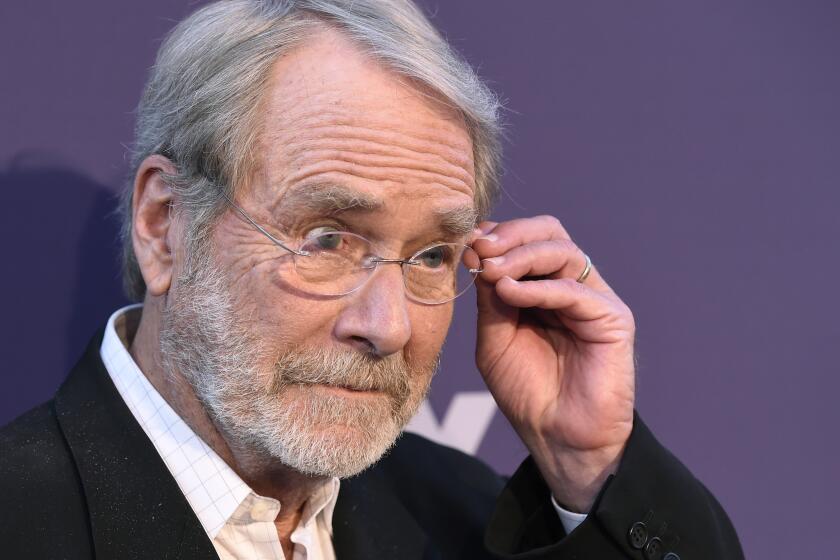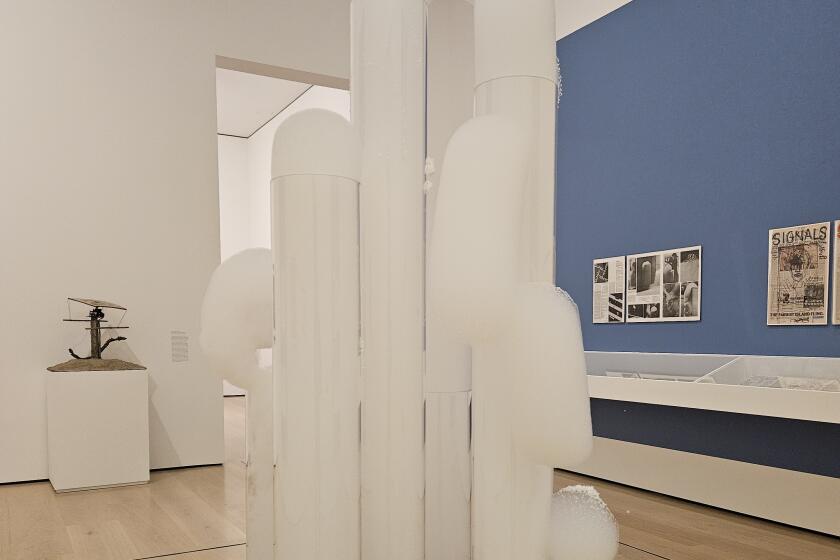Nazi-Era Firm Finds Forgiveness
Nazi-era crimes by a German chemical company that once conspired to exterminate millions of Jews were revisited and to some extent forgiven Thursday when the firm was kept on as a subcontractor for a sprawling Holocaust memorial.
The decision by the Foundation for the Memorial to the Murdered Jews of Europe to allow Degussa to supply anti-graffiti coating to the project came after days of national debate over how to respect the dead while not inhibiting Germany from moving beyond past atrocities.
“Germany, the country, is building this memorial for the murdered Jews,” said Wolfgang Thierse, president of Parliament’s lower house and chairman of the memorial foundation. “We should not exclude parts of society and certain companies, even if their predecessors are linked with the crimes of the Nazis.... We have learned again that the past reaches into the present.”
Degussa, one of the world’s largest chemical producers and whose onetime unit supplied Zyklon B poison gas to Nazi death camps in the 1940s, is recognized for confronting its wartime complicity and making restitution to Third Reich slave laborers and Holocaust survivors. Memorial foundation members acknowledged this, but had to decide whether it was suitable for such a firm to have a hand in constructing a memorial honoring the millions of Jews who perished during the Nazi regime.
The dilemma epitomizes the country’s broader struggle to keep history in sight but not let it taint the present and future. Many Germans believed that if the foundation had voted against Degussa, which had the support of several prominent Jews, it would have incited right-wing nationalists and sent a troubling symbolic message about how long a nation must work to overcome its past brutalities.
Lea Rosh, a memorial foundation board member and an opponent of the company’s involvement, hinted that Degussa’s role might lead to a boycott by some Jews. “For me, it is terrible to imagine,” she said, “that Jews and descendants of Holocaust victims won’t come to the memorial.”
Degussa’s involvement with the project began in December when it offered a 40% discount on anti-graffiti coating for the memorial, which was designed by American architect Peter Eisenman and spreads 2,753 concrete steles of varying height in a wave-like form over a swath the size of two soccer fields. Members of the foundation’s construction board knew of Degussa’s history and had accepted the company’s offer this summer over another bid from a Swiss firm.
Things went smoothly until last month, when a Swiss newspaper ran the headline: “Making Money Off the Holocaust, Twice.”
Work was halted on the steles, and the foundation -- after protests led by Rosh -- initially voted against using the Degussa product. It was later disclosed that a Degussa subsidiary had also provided chemicals to strengthen the memorial’s concrete.
The foundation faced the prospect of hiring other contractors and possibly tearing down 25 steles that had been erected. Such a scenario would have delayed the project past its 2005 deadline -- the 60th anniversary of the end of World War II -- and would have added about $2.5 million to the cost.
Alexander Brenner, the head of Berlin’s Jewish community, opposed Degussa’s involvement but said “it would be ridiculous” to stop construction because of its role.
“Once again Degussa is caught up in its own history,” journalist Hans Leyendecker wrote in the daily Sueddeutsche Zeitung -- noting that the corporation “melted down a ton of gold robbed from Jews and supported the nuclear plans of Adolf Hitler. Hardly any other company has such a Nazi past.... It would have probably been smart to change the name of the company.”
Former Israeli Ambassador Avi Primor to Germany told the media here that Degussa should be commended for recognizing its Nazi collaboration and for decades of attempting to make amends. The company’s name awakens “old ghosts,” said Primor, but Degussa donated money for the Disapora Museum in Tel Aviv and made a “decisive contribution” in helping to build Israel’s chemical industry.
“I would not have a problem to enter this memorial if Degussa participated in the construction work,” said Primor, adding that those who want keep the company off the project must by the same logic exclude today’s “federal government as a successor to the Nazi regime ... an absurdity.”
The Degussa decision comes as anti-Semitic sentiments are again roiling this nation’s politics and prompting reflection on its Nazi past and the pressure it exerts on Germans. The Defense Ministry fired respected Brig. Gen. Reinhard Guenzel this month after he praised a conservative Christian Democrat politician for a speech widely regarded as anti-Semitic.
The politician, Martin Hohmann, said that Jews also have a “dark side” to their history, saying that Bolshevik Jews were responsible for mass murder during the 1917 Revolution in Russia.
Although Hohmann was condemned by his party, his remarks resonated with many Germans who believe that their country has atoned enough for the horrors of the Third Reich. Guenzel, labeled by some analysts as a member of the intellectual “New Right,” wrote in a letter to Hohmann: “You exactly express the feelings of a majority of our people.”
*
Christian Retzlaff in The Times’ Berlin Bureau contributed to this report.
More to Read
Start your day right
Sign up for Essential California for news, features and recommendations from the L.A. Times and beyond in your inbox six days a week.
You may occasionally receive promotional content from the Los Angeles Times.







